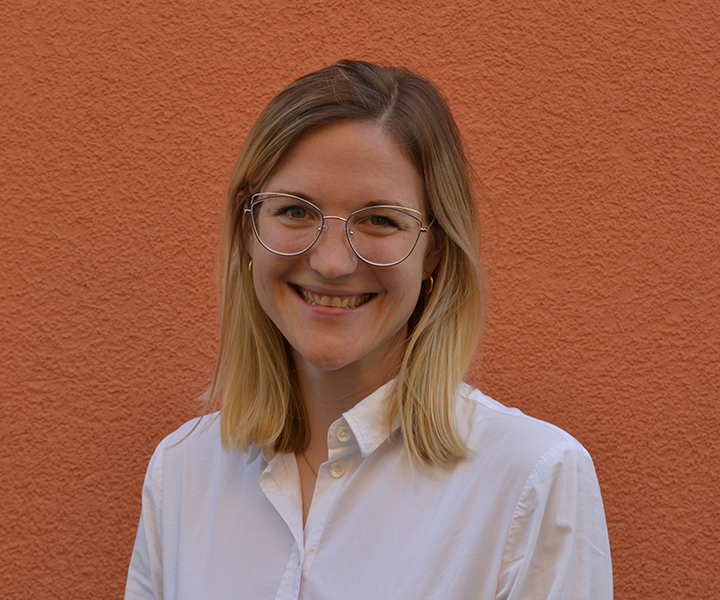Mental health: young people are particularly affected
17 July 2025 | Comment(s) |
Martin Kamber

90% of the Swiss population consider their health to be fairly good to very good, according to a representative survey conducted by the GfK institute on behalf of Groupe Mutuel. However, the study also reveals that young people in particular feel particularly stressed and experience a strong sense of loneliness. A worrying trend, according to psychologist Chantal Anne Hofstetter. Here is the interview.
Groupe Mutuel: Young people in particular report psychological distress. Is Generation Z really doing worse or are they simply more willing to talk about it?
Chantal Anne Hofstetter: The fact that young people speak more openly about their mental health certainly influences the results. But that doesn't mean that mental health issues are just a “trendy topic". Objective indicators such as the frequency of illness, the number of hospital admissions or the number of new disability insurance (AI/IV) pensions granted for psychological reasons show that young people are particularly affected.
We need to distinguish two aspects: on the one hand, young people are subject to significant psychological pressure; on the other, they talk about it more openly than previous generations.

About
Chantal Anne Hofstetter holds a Master's degree in psychology from the University of Bern and is currently Deputy Director of ensa Switzerland, where she is responsible for content and training. The programme, run by the Pro Mente Sana Foundation, offers first aid courses in mental health.
How is the older generation doing?
On average, older people are doing better. They tend to be happier and report fewer symptoms of mental illness. It’s worth noting that when it comes to overcoming difficult situations, the older generation have lived through more crises and has a “head start” thanks to their life experience. On the other hand, these results should be interpreted with caution, as lower openness to mental issues also plays a role: for many older people, psychological problems remain a taboo subject and are heavily stigmatised. So they’re simply not talked about.
This means that while mental health issues are less common among those over 65, they are by no means non-existent. And even in this generation, an upward trend has been observed in recent years. The fact that people in this age group are less likely to seek active help is particularly problematic.
How can one distinguish between a low mood and a “real” depression? What warning signs should we look out for?
Not every low mood is a sign of depression. Temporary sadness or negative reactions to stressful events are part of life. However, if the low mood persists for an extended period (typically two weeks) and is accompanied by other changes such as loss of appetite or difficulty concentrating, and if it disrupts daily life, then action should be taken. This doesn’t necessarily mean psychotherapy: easily accessible counselling services, such as those offered by Pro Mente Sana or Heart2Heart, can help.
In cases of intense suffering, altered consciousness or perception of reality, or suicidal thoughts, it is crucial to act quickly and seek professional help.
"The following rule applies to all age groups: you must approach the person, support them, and, if necessary, guide them toward professional help."
Young people also report a strong sense of loneliness. Why is this?
Indeed, more and more young people seem to be affected by this phenomenon, and it's a trend that deeply concerns me. Loneliness is not only associated with mental health issues, but it also increases the risk of various physical illnesses and suicide. How is it that so many young people – who are in the most socially active phase of their lives and living in an era of unprecedented connectivity – suffer from loneliness?
One theory is that digitalisation, and especially social media, leads to a decline in real-life physical relationships, which provide more support than virtual connections. Unfortunately, 100 “likes” don’t mean you can call 100 people when you’re feeling down or need a distraction. Added to this is the pressure of an individualised, performance-driven society that demands more and more from young people, and at an increasingly earlier age. In the end, there is no simple, clear-cut answer to the question "why?", because mental health is always influenced by a number of factors."
You mentioned a decline in real-life connections. Do social media present other challenges?
Some people see social media as the main cause of this negative trend and even advocate banning them until adulthood. The risks include comparison with unrealistic ideals, cyberbullying, lack of sleep, constant overstimulation – sometimes with age-inappropriate content – and addictive mechanisms.
These dangers are real, but social networks have become an integral part of our daily lives. In my opinion, it would therefore be wiser to teach young people to use digital platforms consciously and responsibly. Strong media literacy also has a protective effect in adulthood. That said, social media also offers opportunities: they can help reduce stigma, provide easy access to information, and foster networking and community.
What can I do myself to strengthen my mental health?
Most of us brush our teeth several times a day and, in case of injury, we disinfect, dress and protect the wound. These healthy routines and reactions go without saying when it comes to physical health, but they are much less common when it comes to mental health. Yet it is possible to strengthen mental health and build resilience against stress. What makes a person feel good or what helps them to relax optimally is very individual.
It's important that we consciously take the time for these things, especially in difficult times. The campaign "How are you?", entitled "Stimuli for Mental Health", offers good guidance for this kind of reflection.
What's the first thing to do when I notice I'm not feeling well?
The first step is to assess whether this state is a normal reaction to a difficult situation. For example, if I’ve lost a loved one or fear losing my job, grief or anxiety are not, in themselves, disorders. But if the symptoms go beyond these emotions, it’s advisable to talk to someone about what’s weighing on you. This could be a friend, your partner, or even your supervisor. That conversation alone can bring relief and help you consider the next steps together.
What are those next steps, concretely?

If you come to the conclusion that professional help is needed, there are several options available. First, there are many easily accessible services, such as the psychosocial counselling offered by the Pro Mente Sana foundation, the helpline “La Main Tendue” (telephone number 143), or addiction counselling centres. In the workplace, there are often social services, HR departments or corporate health management (CHM). For young adults in training, there are school psychologists or social workers. Your general practitioner (GP) can also be a first point of contact. If treatment is necessary, psychiatrists or psychologists can be consulted, either in private practices or as part of regional services.
How and when should you react when someone close to you is unwell?
It's a question that preoccupies many people, because most of them have had to deal with someone close to them suffering from poor mental health. And in those moments, you want to help, but how? For this, I recommend the "Mental Health First Aid" courses offered by ensa. Since young people are still developing biologically, psychologically, and socially, certain aspects must be given special attention in this age group. Ensa also offers first aid courses specifically focused on teenagers, covering topics particularly relevant to them, such as eating disorders or self-harming behaviours. However, the following rule applies to all age groups: “You must approach the person, support them, and, if necessary, guide them toward professional help.”
"The following rule applies to all age groups: you must approach the person, support them, and, if necessary, guide them toward professional help."
To what extent are people with mental health issues still stigmatised today? How can we help break that stigma?
Despite increased public awareness, around a quarter of those affected still do not seek help. It's paradoxical that, although we talk more about this topic today, there is still so much stigma attached to mental disorders and their treatment.
In this context, it is also interesting to look at the disorders that are most talked about. It is more “acceptable” to suffer from burn-out than to talk about depression, and other mental disorders such as schizophrenia are still rarely discussed in public. What's more, those who seek treatment, particularly in hospitals, are still seen in some circles as strange, weak, unpredictable or even dangerous. Only open-mindedness and information can combat this, because mental health concerns us all.

Here are some courses or programmes recommended by Chantal Hofstetter:
- Pro Mente Sana Foundation
Psychosocial and legal advice (German-speaking Switzerland and Ticino) - ensa Switzerland
Mental health first aid courses throughout Switzerland - How are you?
Self-assessment, interview tips, addresses and offers, plus toolkits for schools and businesses - Pro Mente Sana Association
Psychosocial and legal advice (French-speaking Switzerland) - Recovery colleges in Bern, Zurich, St. Gallen, Schaffhausen, Geneva and Lausanne
Training offer with teaching, learning and exchange opportunities on the theme of mental health - Stand by you (German)
For relatives and carers of people with mental illnesses - 143.ch
Heart2Heart – for those seeking help - 147.ch (German, French, Italian)
For children and adolescents (Pro Juventute) - Talking can save (German, French, Italian)
Talk about suicidal thoughts - Institut Kinderseele (German)
Keeping the children of mentally ill parents healthy - Health Promotion Switzerland (German, French, Italian)
Professional offers such as Apprentice, HR-Toolbox or Leadership-Kit






